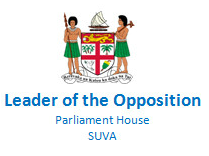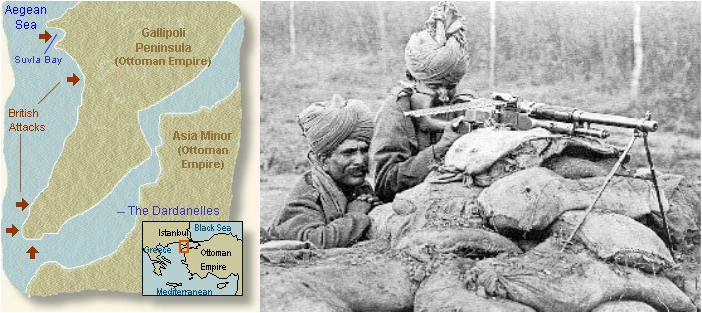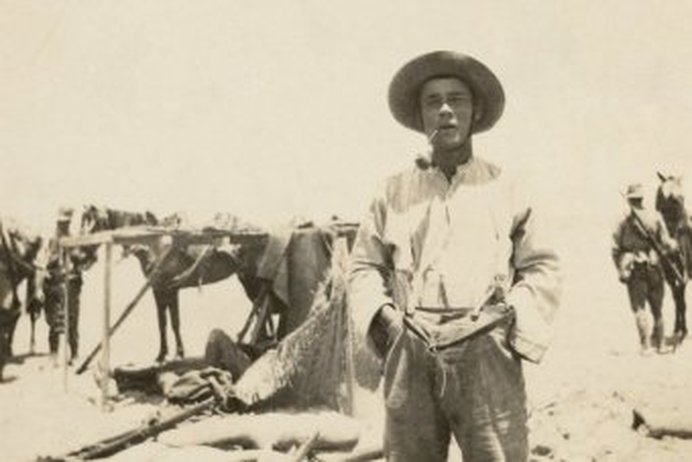
We will remember all of them today, those brave sons who sacrificed their lives in the defense of the Peace we so often take for granted. We pray for and give thanks to their families who continued that fight for our freedom by shouldering for all of us the burden their loss, we pray also for those young men that survived the war, and who faced alone the trauma and pain of the conflicts and carried the memories for their fallen comrades and helped us all remember them so that 100 years on, we shall not forget.
On behalf of all the families of Fiji, I give thanks to all the families of those brave sons of ANZAC who made the ultimate sacrifice for us and those who survived Vinaka Vakalevu and we honor your courage and bravery today.
The sad reality of the World Wars is the causalities like the young men we honor today. Approximately 92 million causalities from the two world wars and in the past 4 years another 20 armed conflicts have occurred and are ongoing around the World and tens of thousands of innocent men, women and children have perished with multiple millions more displaced.
I pray that good scene will one day soon possess all leaders so that they collectively realize that the greater conflict that all nations will face sooner rather than later is the survival of mankind itself.
The hundreds of billions of dollars spent each year on instruments of war that unleash destruction if redirected towards more humane and moral challenges like the survival of mankind and the plant earth, we will yield enough positive results that we would be able to house every needy family, create enough employment for all and through the peaceful use of technology, create new ways to feed people and ensure enough drinking water and sanitation.
We can use our collective energies to fight climate change and bring the combined resources of our plant to ensure we are one with nature. This would ensure that life for our future generations is sustainable.
But for today, let us remember our courageous men of ANZAC in our prayers and our hopes for the future.
Lest we forget, I want to also pay tribute to one of our own great leaders of Fiji; Ratu Sir Lala Sakuna who was himself in battle as a member of the French Foreign Legion during the great European War.
We remember to the members of the First Fiji Contingent who were attached to the Kings Royal Riffles and engaged in the battle of Ypres from May 8th to 10th 1915, sadly, in this battle all but three of our men lost their lives.
We will shall never forget them
Ro Teimumu V Kepa
Leader of the Opposition
Up to 15,000 'forgotten' Indian soldiers fought alongside Anzacs - Unlike many Australian troops, all the Indians who fought were professional soldiers
Up to 15,000 Indians fought with allied troops at Gallipoli, but their contribution remains relatively unknown and unrecognised in Australia and their homeland, research has found.
"The average Indian is almost ignorant about Gallipoli as a campaign in World War I," retired Indian Air Force wing commander Rana Chhina said.
Historians believe almost 1,400 Indians died at Gallipoli and up to 3,500 were wounded.
Unlike many of the Australian troops, all the Indians who fought were professional soldiers.
"We had an Indian infantry brigade, the 29th Indian Infantry Brigade. We had a mountain artillery brigade and, of course, the mule transport," Mr Chhina said.
The Mule Corps comprised of 650 men and more than 1,000 mules to transport supplies to troops on the peninsula where motor transport was impossible.
Historians say the Mule Corps established themselves in an area known as Mule Gully, which came under constant sniper and machine gun fire during the day.
As a result, most transport took place at night.
"The Mule Corps were the unsung heroes of Gallipoli. If it hadn't been for them, the Anzacs and the rest wouldn't have been able to hold on in the manner that they did," Mr Chhina said. Source: ABC News
'Not white enough to fight', Chinese Anzacs initially barred from enlisting for WWI
More than 200 Chinese Anzacs who fought bravely for Australia during WWI were almost stopped from enlisting because they were not of "sufficient European origin or descent".
When war broke out, an Act of Parliament in line with the White Australia Policy prevented any man who was not white from signing up to go to war.
This included Chinese-Australians born here after their parents came for the gold rush of the late 1800s.
Historian Emily Cheah Ah-Qune said some managed to sneak through and go to Gallipoli early in the campaign, but the majority were turned away on sight.
"We do know for a fact that some of the men who tried to enlist were barred from enlisting by medical officers because they were not substantially European enough," she said.
Ms Cheah Ah-Qune is curator of the Chinese Anzacs exhibition at Melbourne's Chinese Museum.
She and her colleagues discovered at least 218 Chinese-Australians went to the front, but most were forced to wait until the Australian Imperial Force (AIF) needed reinforcements.
"At that time, Australia had suffered heavy losses in the war and they just wanted to raise enough numbers and send these young men overseas," Ms Cheah Ah-Qune said.
The law had not been changed but Ms Cheah Ah-Qune suggested: "Perhaps the rules were relaxed, perhaps medical officers were no longer as stringent in the criteria, and perhaps other young men saw what others had sacrificed for the country and went 'you know what? I'm going too'."
'If Australia's good enough to live in, it's good enough to fight for'Victorian man Benjamin Moy Ling tried to enlist twice, before he was finally accepted in 1917 at the age of 31.
He served with the 60th Battalion and later with the 4th Divisional Signals Company.
Mr Moy Ling's great-niece, Serena Cheung, said her great-uncle wanted to enlist because he said at the time: "If Australia's good enough to live in, it's good enough to fight for."
She is very proud of the job her great-uncle Ben did on the Western Front, but shakes her head knowing the law meant he was nearly never sent there.
"These days we would call it discrimination," Ms Cheung said.
"But there were no qualms about it; it was written across the earlier applications forms.
"I guess in those days one couldn't really protest against that, but it makes one feel angry that he was discriminated against."
Mr Moy Ling survived the war and returned to his home in Melbourne in 1919.
"We are very proud of him and I wonder what he would think if he knew the subject of this story," Ms Cheung said.
Ms Cheah Ah-Qune said just 36 of the 218 soldiers she and her colleagues have researched died in battle.
Many of those who survived were recognised with military honours.
"Of the Chinese-Australians that we have managed to research, 19 of them won 23 gallantry awards so that's quite substantial," Ms Cheah Ah-Qune said.
"One of them was actually awarded the Belgian Croix de Guerre, which is one of the highest awards you could possibly have.
"There are some families who are very hesitant to own up to Chinese heritage even today, quite possibly because of the legacy of the White Australia Policy.
"But [descendants of Chinese Anzacs] should be proud because they are a large part of Australian history." Source: ABC News



